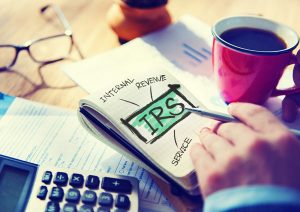 It seems that there is no bigger boogeyman in the United States government than the perennial, symbolic taxman that is the IRS. Although the fears of the IRS are largely overblown, and the agency is slowed down by the momentous bureaucracy that permeates it, there are financial measures that the IRS is allowed to take that cannot be found anywhere else. These special powers are what gives the IRS the ability to collect taxes in an efficient manner, although there is certainly debate over whether these authorities are an egregious example of overreach. Here are some of the special powers of the IRS…
It seems that there is no bigger boogeyman in the United States government than the perennial, symbolic taxman that is the IRS. Although the fears of the IRS are largely overblown, and the agency is slowed down by the momentous bureaucracy that permeates it, there are financial measures that the IRS is allowed to take that cannot be found anywhere else. These special powers are what gives the IRS the ability to collect taxes in an efficient manner, although there is certainly debate over whether these authorities are an egregious example of overreach. Here are some of the special powers of the IRS…
The IRS can give a summons for information
Typically, most government agencies can issue a summons for information, but only by going through the authoritative powers of a court. This roadblock does not exist for the IRS, however. The IRS can issue its own agency-specific summons for taxpayer information through its own authority. This makes the IRS the single largest collection of personal and financial information in the country.
Taxpayer shoulders the burden of proof
When it comes to criminal law in this country, the burden of proof is always on the state to prove that a defendant is guilty. However, this isn’t necessarily the case when it comes to financial law. For example, the IRS does not have to prove that a taxpayer owes a certain amount of money on their taxes. The burden of proof is always on the taxpayer to prove that the amount requested by the IRS is wrong. This is a legal precedent that doesn’t exist anywhere else in the judicial system of the United States.
The IRS can levy paychecks without a court order
Of all of the special agency abilities that are possible through the IRS, this is the one that tends to shock people the most. It is true. The IRS is able to levy your wages, provided they give you notice. While other financial institutions are able to collect on those who are overdue on payments, it is only possible through a court order that is challenging to obtain. The IRS, though, is able to garnish your wages without the authority of a court, whether they go through your employer or your personal bank.
